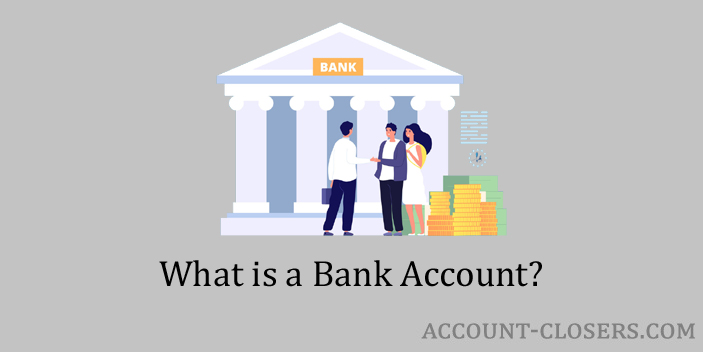A Bank account is a financial account of an individual or entity that is maintained by a bank or any financial institution that accepts deposits. In the case of the bank account, every transaction that takes place is recorded with all the important details.
In the records, we can find the details like the type of transaction, (debit or credit) time and date of the transaction, and narration. (if provided)
So in simple words, the meaning of an account is nothing but an account of an individual or entity that is maintained by a bank or financial institution.

Definition of a Bank Account
According to Oxford Languages, it is an arrangement made with a bank whereby one may deposit and withdraw money and in some cases be paid interest.
According to Collins Dictionary, A bank account is an arrangement with a bank which allows you to keep your money in the bank and to take some out when you need it.
According to the Merriam-Webster dictionary, an account with a bank created by the deposit of money or its equivalent and subject to withdrawal of money (as by check or passbook)
What About Interest in the Account?
As we can read in the definition in some cases the account holder will receive the interest from the bank. And in other cases, the account holder has to pay the bank for maintaining the account.
This totally depends upon the country where you have your account and the fundamentals of the financial system in your country. The maximum and minimum amount of interest rate is decided by the central bank of the country.
Types of Accounts
There are various types of accounts that can be found in various banks and financial institutions around the globe. We have explained them below.
- Savings Account: This type of account is opened by the individuals in which he or she can deposit the money. The bank will take care of the money deposited into the account. In some cases, the banks will pay interest and in other cases, they charge interest.
- Current Account: This type of account is tailored for the businesses and the entities. This kind of accounts is different from Savings one. The charges the account holder has to pay are totally different. The documentation required for this kind of account is pretty complicated.
- Fixed Deposit Account: In this type of account the account holder deposits some money into the account which will be locked for an agreed period of time. The interest rate the account holder will receive will be more than that of the current account. In case the account holder wants to withdraw the money there will some penalty applied by the bank. Also in some cases, modern banks are allowing partial withdrawal of money from fixed deposit accounts.
- Loan Account: This type of account is opened when an individual or entity takes a loan from a bank or financial institution. The balance in this type of account is said to be outstanding until the loan taken is fully repaid with interest. (Principal Amount + Interest Rate) Once the loan is fully repaid this account is closed.
- Recurring Deposit Account: In the case of an RD account the individual or entity will deposit money every month. The interest rate of RD accounts is slightly higher when we compare to that of the savings account. Recurring deposit accounts are somewhat like a SIP. (Systematic Investment Plan)
Conclusion
This is all about the meaning, definition, and types of the bank account. While opening a new account if you are an individual then you should go with the savings account. And in case if you are an entity then the current account will be great for you.
Add Comment